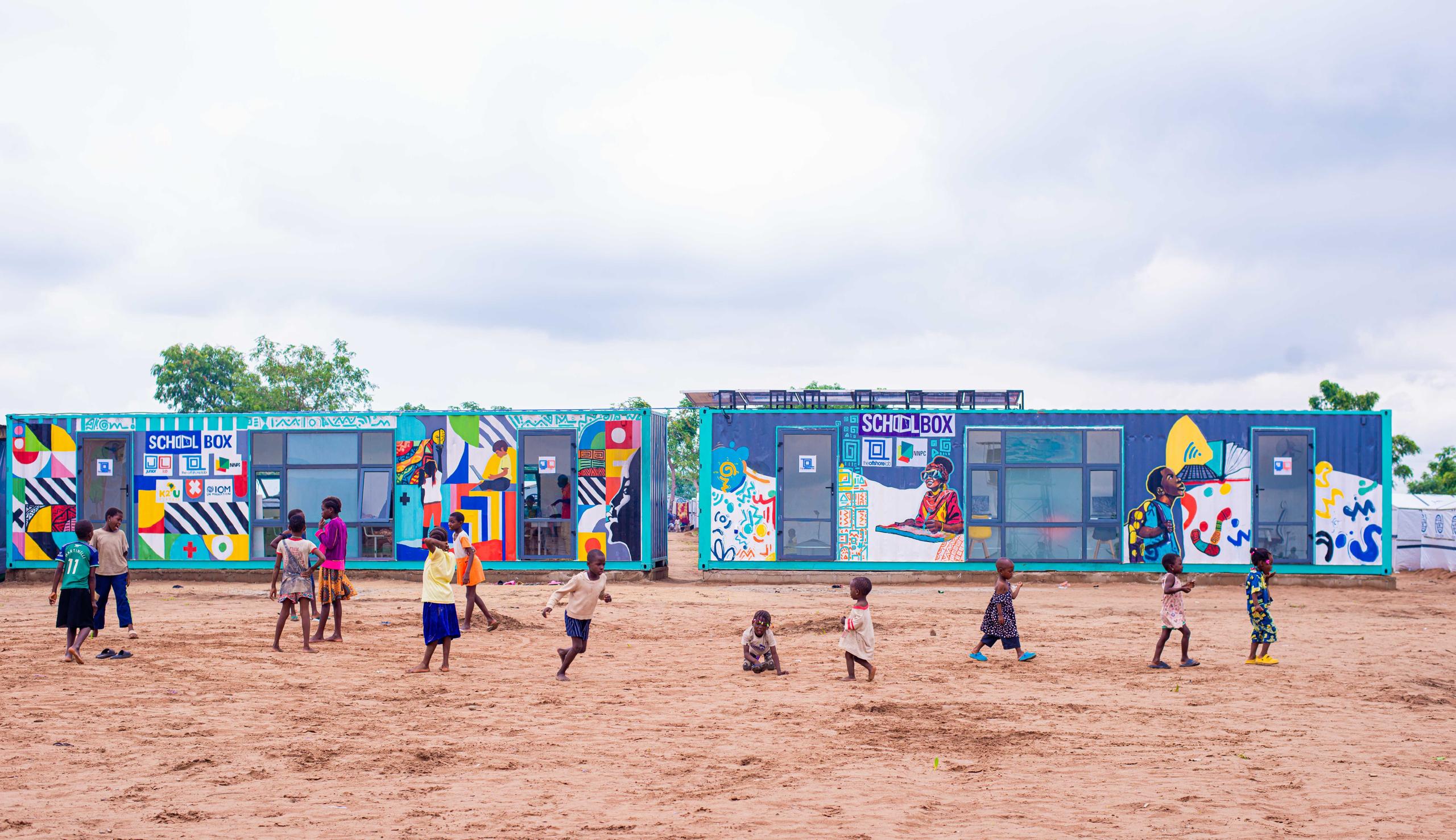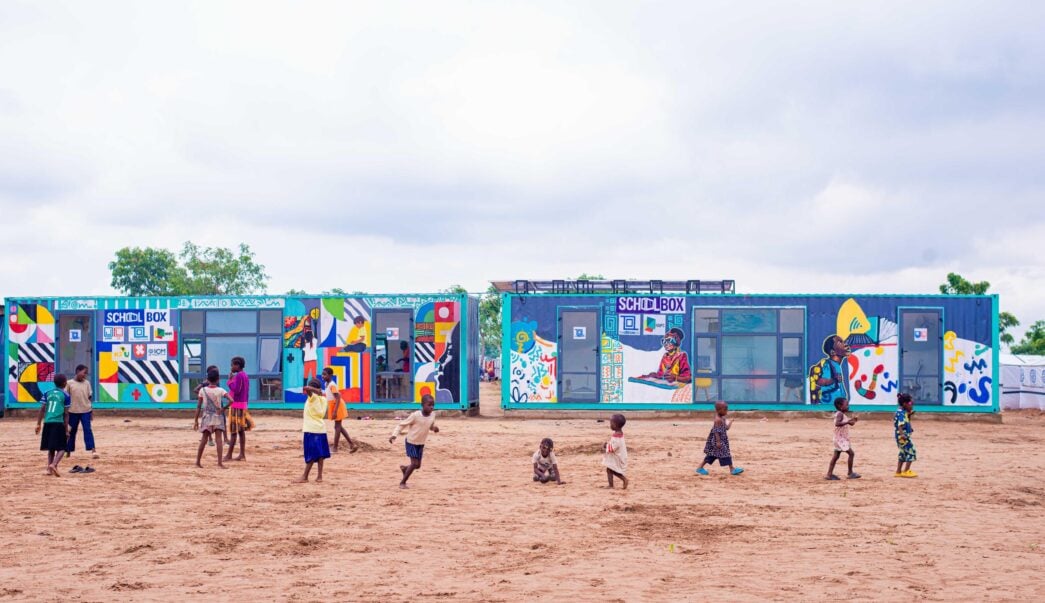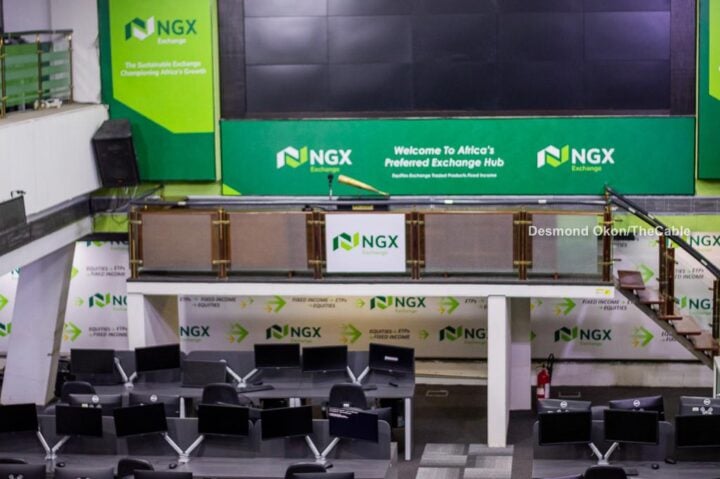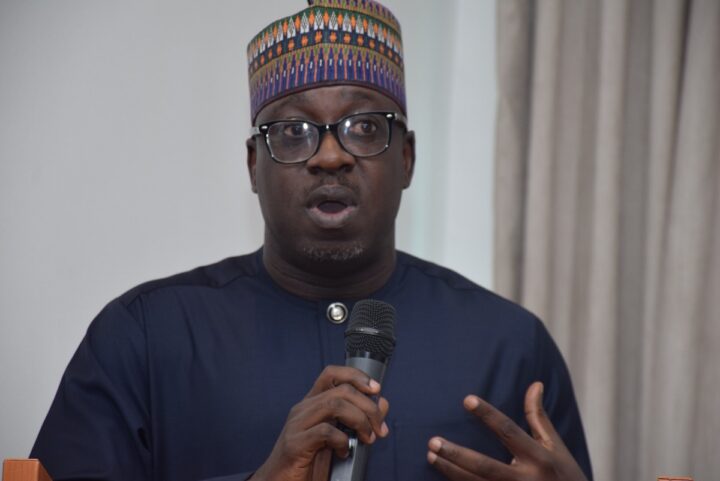Low, heavy clouds pressed over the sky threatening to turn the already damp red earth from previous downpours to thick mud. As the low growls of thunder rumbled, 14-year-old Terkula Bemdoo hurried toward a bright blue container stationed proudly in front of the temporary tarpaulin shelters that littered the mega internally displaced persons (IDP) camp at the Mbayongo community in Benue’s Guma LGA.
Inside, it was dry, lit, and offered solace from the rain that leaked into the tent he shared with his family. But the warmth from the container was beyond just shelter from the storm; it gave hope for a future. There was a teacher waiting inside.
The last time Bemdoo attended school was 10 years ago in his community, before he arrived in the camp. He was displaced from his home by the frequent violent farmer-herder clashes that have come to grimly define Benue state. In the camp, going to school was impossible when the priority was simply finding the next meal. Staying healthy was a bigger challenge and Bemdoo knew from a young age that the route to achieving his dreams as a mathematician wasn’t going to be an easy experience.
The only memory of school the 14-year-old had was that it “was so bad”. Benjamin Prosper, Bemdoo’s 15-year-old friend, recalled having to sit on mats to write.
Advertisement
But SchoolBox, the containers, opened a new world to the young boys. The blue walls of the 40ft container came alive with murals — painted patterns winding like ribbons and silhouettes of children nursing their dreams in defiant, blues, reds, and yellows — softening the steel. Square windows cut neatly into its sides juxtaposed by transparent glass doors. The environment offered the children a glimpse of how dreams can be achieved as they waited their turn to learn.
Inside, seats fitted with desks, a whiteboard, and fans hooked to the walls gave the feel of a real school. Solar panels sat atop a frame above, tilted like open wings, catching what light they could to power the classroom that felt less like a repurposed shipping crate and more like a place that belonged to its students.
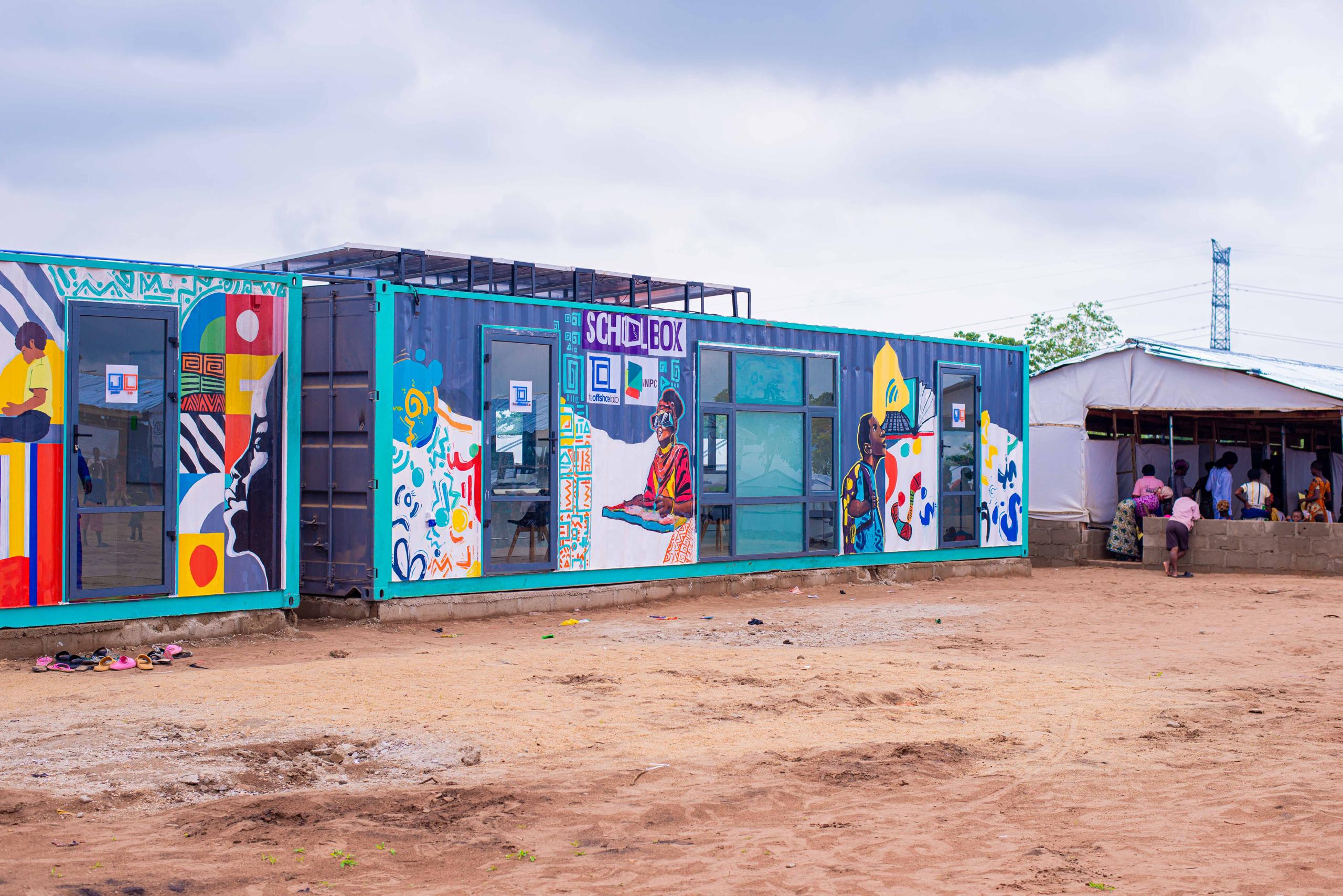
“SchoolBox was born out of a sense of urgency,” Emeka Obiwulu, CEO of The Offshore Lab, the company behind the education project, told TheCable.
Advertisement
“It was born out of a refusal to just accept that all of these millions of Nigerian children were just destined to grow up in limbo, without classrooms, without teachers, or even hope of a future.
“It’s a way of bringing education to the margins without waiting for the perfect conditions. It’s like a handshake from the wider world to them.”
A 2024 UNICEF report disclosed that Nigeria has around 18 million out-of-school children. This includes about 10.2 million primary school-age children and 8.1 million junior secondary school-age children. The crisis is compounded by increasing displacement in conflict-prone states due to prolonged insecurity
SchoolBox was developed to address this challenge by supporting Nigeria’s formal education system particularly in IDP camps and regions affected by insecurity or temporary school closures.
Advertisement
Each SchoolBox is a recycled and repurposed shipping container, transformed into a safe, solar-powered and fully functional classroom, ICT lab or water, sanitation and hygiene (WASH) facility. These modular units are relocatable using flatbeds and Hiab trucks, making them ideal for emergency education needs and transitional learning support.
Obiwulu noted that shipping containers were chosen as temporary classrooms owing to their structural integrity and durability.
GETTING LOCAL BUY-IN
Patience John, an education expert, told TheCable that mobile classrooms are vital as a complementary strategy because they offer flexible, accessible education alternatives where traditional schooling is compromised. She added that it requires integration with existing systems and investment in infrastructure, training, and localised content to be truly effective.
Advertisement
Obiwulu agreed with this viewpoint. For the CEO, it was one of the most successful hallmarks in implementing the project.
By relying on the State Emergency Management Agency (SEMA) and the UN’s International Organisation for Migration (IOM), The Offshore Lab was able to gather data of preexisting teachers in the camp without outsourcing the task of guiding students.
Advertisement
“Starting off inspired a lot of the others (teachers) who hadn’t come out to volunteer themselves or identify themselves as of then to come out and do that,” he added.
On a deployment level, Obiwulu said The Offshore Lab partnered with the State Universal Education Board (SUBEB) and the state ministry of education to identify a nearby school and act as its proxy by offering teacher-training and exchange programmes between the school and the camp, as well as curriculum integration.
Advertisement
Quarterly and monthly, an external supervisor from The Offshore Lab assesses the progress.
“As much as we have the local buy in, we still have a role to play in ensuring that all of those things that we benchmarked are actually going through,” he explained,
Advertisement
Obiwulu noted that catering to the 2,500 kids from the camp was, however, a challenge, especially with constraining resources. The containers are only equipped with 20 seats with only two units shipped to the camp as a pilot project.
As such, students in key examination classes, mostly the final years of primary education, are prioritised, relying on information from the camp’s management.
WHAT NEXT?
Though the project took off in June, Obiwulu is looking to quickly spread this impact across Nigeria.
He told TheCable the company is working on a batch of 10 more containers that would serve as an ICT lab for an orphanage in the Niger Delta.
The CEO said he is banking on previous successes from similar projects carried out for energy companies such as the Nigerian National Petroleum Corporation (NNPC), Shell, and Renaissance Africa Energy Company to prove the importance of sustaining SchoolBox to future partners.
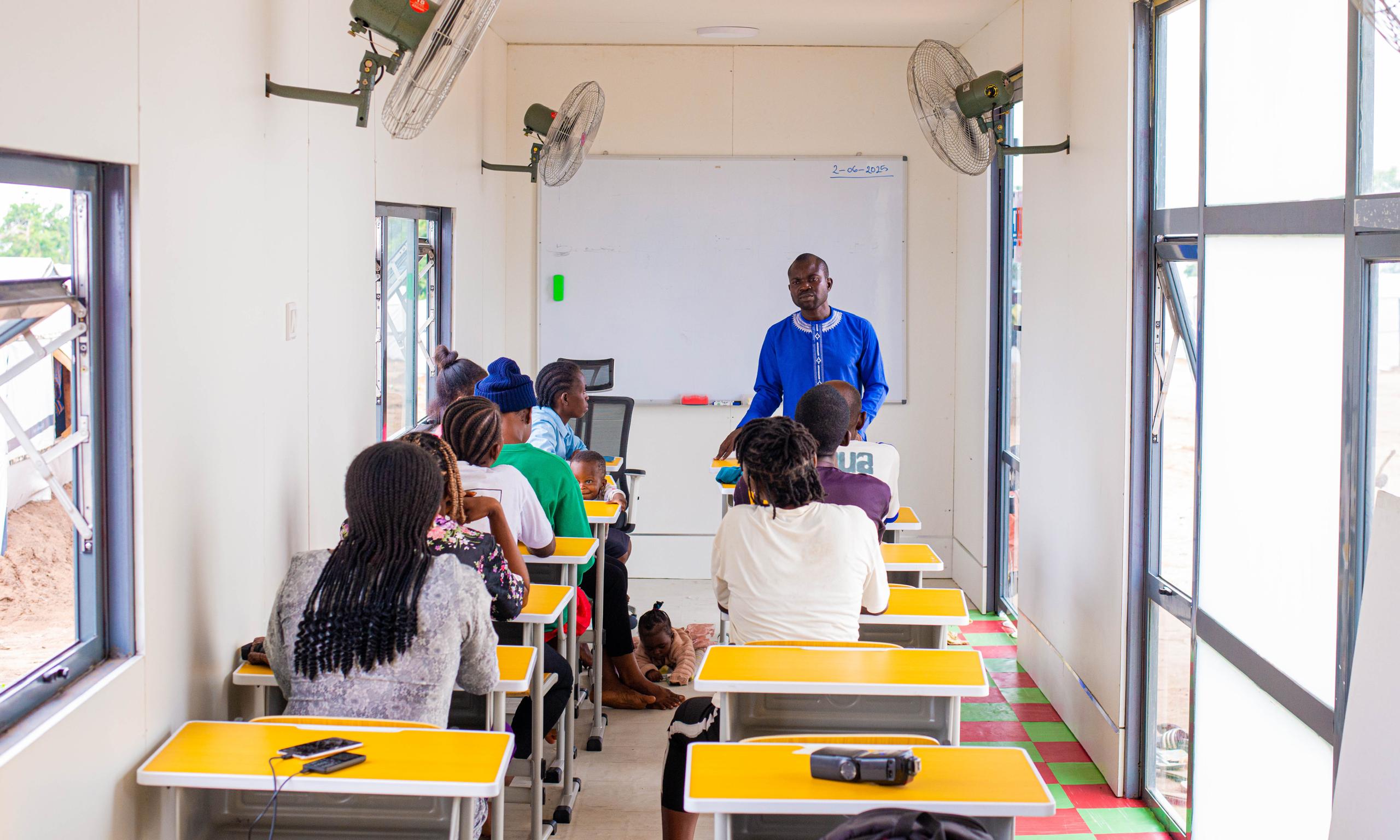
“It will take us decades to get through,” Obiwulu said. He noted that the accessibility of SchoolBox would make it easier to “quickly reach every corner of the country”.
“Every child deserves the chance to do maths, to read, to count, and to dream in his space. That tells them, ‘you really matter’, you know,” he added.
“We design for the hardest place — the climate crisis hit places, the IDP camps, the flood isolated riverine areas, the deserted communities — places where infrastructure won’t go.
“It’s working now based on our pilot, and we’re very hopeful our ambitious reach of ‘no loss Nigeria’ can actually be reached.”
Bagu Gloria, the assistant headteacher at the proxy school in the mega IDP camp, said the children now feel remembered and can now dream again.
She hoped for the arrival of more containers so more children could taste the feeling of hope.
